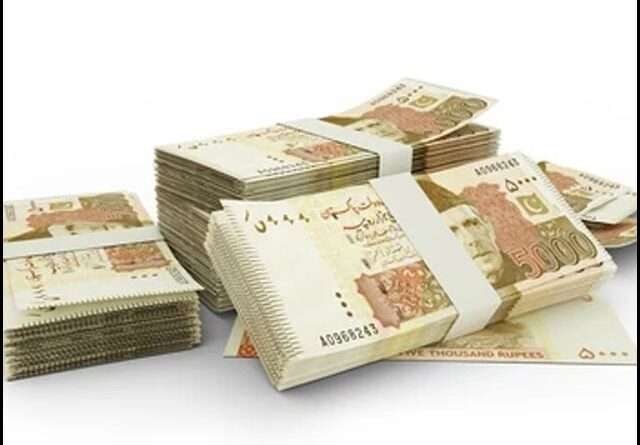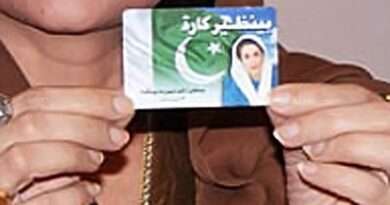Senate Considers Banning Rs5,000 Note to Curb Tax Evasion
|
Getting your Trinity Audio player ready...
|
The debate surrounding the potential ban of the Rs5,000 note has once again taken center stage in Pakistan’s legislative discussions. This issue, which has been a recurring topic over the years, was recently revived during a Senate standing committee meeting. Committee member Mohsin Aziz strongly advocated for the withdrawal of the high-denomination note to counteract tax evasion and other illicit financial activities. This article delves deep into the history, implications, and potential outcomes of such a ban, providing a comprehensive overview of the topic.
Historical Context of the Rs5,000 Note Ban Debate
Early Advocacy and Initial Proposals
Over the years, the idea of discontinuing the Rs5,000 note has been proposed by various officials and politicians. The high denomination is often criticized for its alleged role in facilitating corruption, money laundering, and tax evasion. Proponents of the ban argue that removing the note would force individuals to engage in more transparent financial transactions.
Recent Developments
Senate Standing Committee Meeting
The most recent discussion occurred on Thursday during a Senate standing committee meeting. Mohsin Aziz, a committee member, called for the immediate withdrawal of the Rs5,000 note. Aziz emphasized that such steps are crucial for combating tax evasion and enhancing the transparency of financial transactions.
Statements from the State Bank of Pakistan
In August, the Governor of the State Bank of Pakistan (SBP) addressed this issue during a committee session. The Governor rebutted claims about the proposal being under consideration, clarifying that similar suggestions had been made in the past but were not approved. This statement indicates a lack of consensus among key financial authorities regarding the ban.
Arguments For and Against the Ban
Advocates for the Ban
Curbing Tax Evasion and Corruption
Proponents argue that high-denomination notes like the Rs5,000 facilitate tax evasion and corruption. By banning such notes, financial transactions would need to be conducted using lower denominations, which are easier to track and regulate.
Encouraging Digital Transactions
Another argument in favor of the ban is that it would encourage the adoption of digital payment methods. With fewer high-denomination notes in circulation, individuals and businesses might be more inclined to use digital platforms, thereby promoting financial transparency and reducing the informal economy.
Opponents of the Ban
Practical Challenges
Opponents highlight the practical challenges associated with banning the Rs5,000 note. They argue that such a move could create significant inconvenience for individuals and businesses that rely on cash transactions. The abrupt withdrawal of the note could disrupt daily economic activities and potentially lead to cash shortages.
Limited Impact on Tax Evasion
Critics also question the effectiveness of the ban in curbing tax evasion. They argue that individuals engaged in illicit activities would find alternative means to conduct their transactions, thereby circumventing the intended purpose of the ban.
The Role of the Rs5,000 Note in Pakistan’s Economy
Current Usage and Circulation
The Rs5,000 note remains the highest denomination in Pakistan and is widely used for high-value transactions. Its presence in the economy is significant, as it allows for the convenient handling of large sums of money. This is particularly important in a cash-dominated economy like Pakistan’s, where digital payment infrastructure is still developing.
Impact on Financial Transparency
The high denomination note has been a focal point in debates about financial transparency and accountability. Its critics argue that it facilitates the concealment of illicit wealth and undermines efforts to promote transparent financial practices. On the other hand, supporters of the note emphasize its practicality and the role it plays in the economy.
Potential Outcomes of the Ban
Positive Outcomes
Enhanced Financial Transparency
If the ban were to be implemented, it could lead to increased financial transparency. By forcing transactions to be conducted with lower denomination notes or through digital platforms, the government could better monitor financial activities and reduce the scope for tax evasion and corruption.
Boost to Digital Economy
The ban could also provide a significant boost to Pakistan’s digital economy. With fewer high-denomination notes in circulation, individuals and businesses might be more inclined to adopt digital payment methods, thereby promoting financial inclusion and modernizing the economy.
Negative Outcomes
Economic Disruption
A sudden ban on the Rs5,000 note could lead to significant economic disruption. Individuals and businesses that rely on cash transactions might face difficulties in conducting their activities, leading to potential cash shortages and a slowdown in economic activity.
Limited Effectiveness
There is also the risk that the ban might not achieve its intended purpose. Individuals engaged in illicit activities could find alternative means to conduct their transactions, thereby undermining the effectiveness of the ban in curbing tax evasion and corruption.
FAQs
1. Why is there a proposal to ban the Rs5,000 note?
Answer: The proposal to ban the Rs5,000 note aims to curb tax evasion, corruption, and other illicit activities by reducing the convenience of high-value cash transactions and encouraging more transparent financial practices.
2. What are the arguments in favor of banning the Rs5,000 note?
Answer: Proponents argue that the ban would enhance financial transparency, curb tax evasion, and encourage the adoption of digital payment methods, thereby modernizing the economy.
3. What challenges could arise from banning the Rs5,000 note?
Answer: Practical challenges include potential economic disruption, inconvenience for individuals and businesses reliant on cash transactions, and the risk that the ban might not effectively curb illicit activities.
4. How might the ban impact Pakistan’s digital economy?
Answer: The ban could boost Pakistan’s digital economy by encouraging the adoption of digital payment methods, promoting financial inclusion, and modernizing the economy’s payment infrastructure.
5. Has the State Bank of Pakistan (SBP) supported the ban on the Rs5,000 note?
Answer: The SBP Governor has clarified that no such proposal is currently under consideration and that similar suggestions in the past were not approved, indicating a lack of consensus among key financial authorities.
Conclusion
The debate over banning the Rs5,000 note in Pakistan reflects broader concerns about financial transparency, tax evasion, and economic modernization. While the proposed ban has its advocates and opponents, its potential impact on the economy and financial practices remains a topic of significant interest. As the discussion continues, it is crucial to consider both the potential benefits and challenges of such a move to ensure that any policy changes effectively address the underlying issues.
MUST READ




